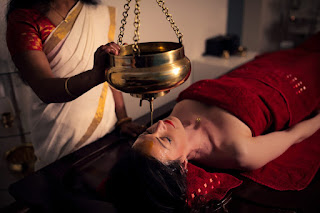Ayurveda in Sri Lanka: A Journey into Ancient Healing
Sri
Lanka, often referred to as the "Pearl of the Indian Ocean," is
renowned for its stunning landscapes, rich culture, and ancient traditions.
Among its many treasures, Ayurveda stands out as a profound and enduring
heritage. Ayurveda, meaning "the science of life," is a holistic
system of medicine that has been practiced in Sri Lanka for over 3,000 years.
This blog explores the roots, principles, and contemporary relevance of Ayurveda Sri Lanka,
offering insights into this timeless healing tradition.
The Roots of Ayurveda in Sri Lanka
Ayurveda
in Sri Lanka has deep historical roots, influenced by both indigenous practices
and classical Ayurveda from India. Ancient texts and archaeological findings
suggest that Ayurvedic medicine has been integral to Sri Lankan culture since
the arrival of Prince Vijaya in the 5th century BCE. Over centuries, it evolved
uniquely on the island, incorporating local herbs, spices, and healing
practices.
Sri
Lankan Ayurveda is also heavily influenced by the Buddhist philosophy,
emphasizing balance, mindfulness, and compassion in treatment. The holistic
approach of Ayurveda, which considers the body, mind, and spirit, aligns
seamlessly with Buddhist teachings, creating a unique synergy that defines Sri
Lankan Ayurvedic practices.
Principles of Sri Lankan Ayurveda
The
core principles of Ayurveda revolve around the concept of balancing the three
doshas: Vata (air and space), Pitta (fire and water), and Kapha (water and
earth). Each individual is believed to have a unique combination of these
doshas, and health is achieved by maintaining their balance through diet,
lifestyle, and natural remedies.
Sri
Lankan Ayurveda places great emphasis on the use of locally sourced medicinal
plants and herbs. The island’s rich biodiversity provides a wealth of natural
ingredients, such as Gotu Kola, Neem, and Turmeric, which are integral to
various treatments. These herbs are used in a variety of forms, including oils,
pastes, decoctions, and powders, tailored to address specific health
conditions.
Modern-Day Relevance and Practices
In
contemporary Sri Lanka, Ayurveda continues to be a vital part of healthcare, blending
seamlessly with modern medical practices. Ayurvedic hospitals, wellness
centers, and spas are widespread, offering treatments ranging from
detoxification and rejuvenation to the management of chronic illnesses. These
centers attract both locals and international visitors seeking natural and
holistic healing.
One
of the prominent Ayurvedic practices in Sri Lanka is Panchakarma, a
comprehensive detoxification and rejuvenation program. Panchakarma involves a
series of therapeutic procedures designed to cleanse the body of toxins,
balance the doshas, and restore overall health. This ancient therapy is highly
regarded for its effectiveness in promoting physical and mental well-being.
Ayurveda and Tourism
Ayurveda
has also become a significant draw for wellness tourism in Sri Lanka. Many
visitors come to the island specifically to experience authentic Ayurvedic
treatments in tranquil settings. Resorts and wellness retreats offer tailored
Ayurvedic programs that include personalized consultations, herbal treatments,
yoga, and meditation. These programs not only address health concerns but also
provide a holistic experience that rejuvenates the mind, body, and soul.
Conclusion
Ayurveda
Sri Lanka
is a testament to the island’s rich cultural heritage and its enduring
connection to natural and holistic healing practices. This ancient science
continues to thrive, offering valuable insights into maintaining health and
well-being in a natural and balanced way. Whether you are seeking to address
specific health issues or simply looking to experience the profound benefits of
a holistic approach to wellness, Sri Lankan Ayurveda offers a timeless journey
into the heart of ancient healing.



Comments
Post a Comment